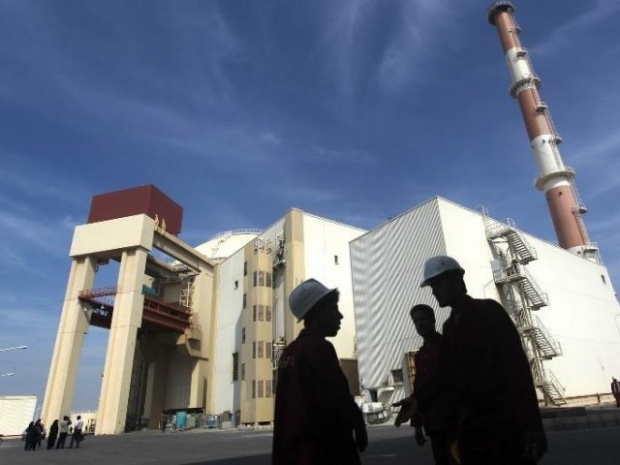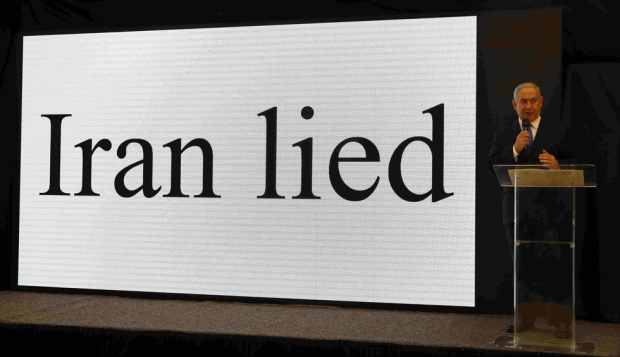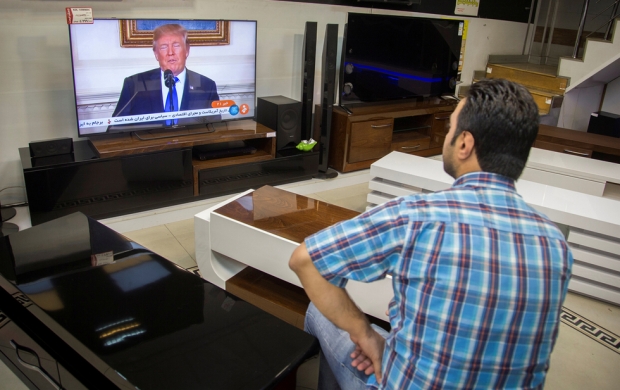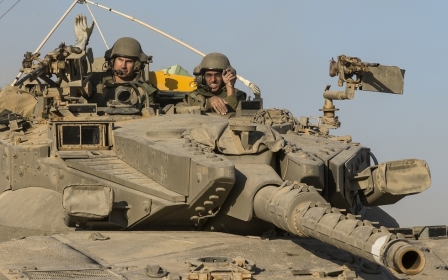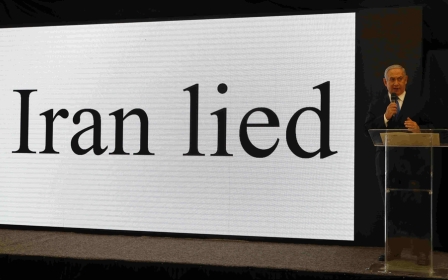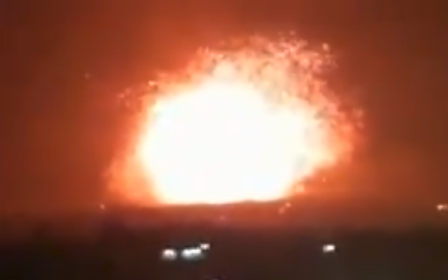Q&A: The Iran nuclear deal, and why Netanyahu and Trump oppose it
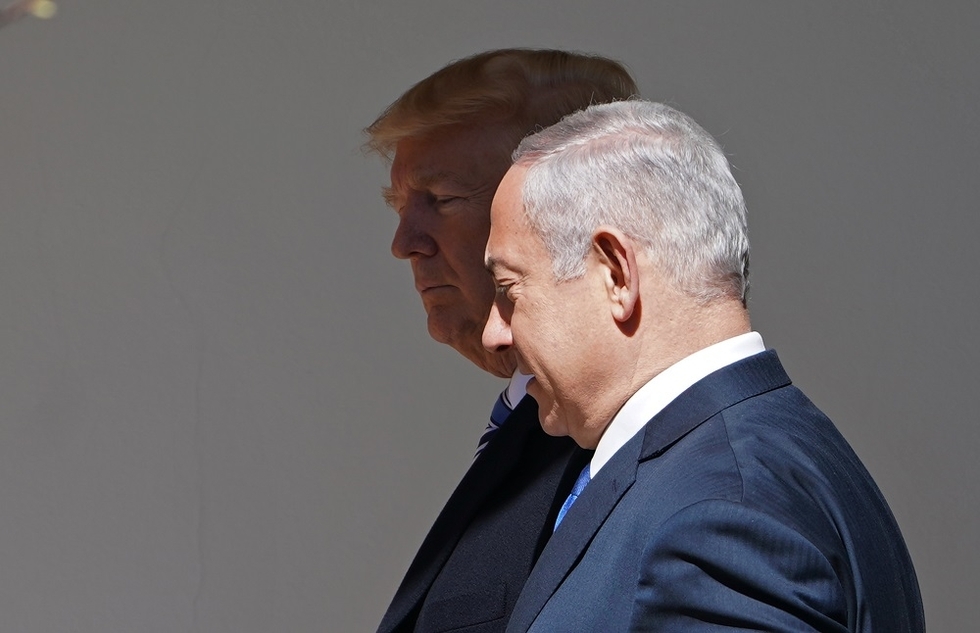
Israeli Prime Minister Benjamin Netanyahu unveiled on Monday what he claimed was a "half tonne" of Iranian nuclear documents collected by Israeli intelligence, claiming it proved Tehran covered up a nuclear weapons programme before signing a 2015 deal with world powers which ended it in return for sanctions relief.
But what is that deal, and why are some in Israel and the US president, Donald Trump, so set against it?
The agreement
The Joint Comprehensive Plan of Action, or JCPOA, was a breakthrough diplomatic and economic deal that ended a 12-year standoff between Iran on one side and the West on another. The West, led primarily by the US and Europe, was concerned that Tehran was using a civilian nuclear programme to mask a drive to develop a nuclear bomb.
Negotiations started in June 2013 between Iran and the five permanent members of the UN Security Council - Britain, China, France, Russia and the United States - plus Germany. The deal was driven through over the next two years under the leadership of former US leader Barack Obama.
The nuclear deal does not tackle Iran's ballistic missile programme. Several world powers, including the United States, still have sanctions in place over Tehran's research and testing of missiles, backed up by UN resolutions. Iran continues to test and produce ballistic missiles.
Why does it matter?
The accord, which came into force on 16 January 2016, puts restrictions on Iran’s nuclear technology that effectively reduce to a minimum of one year, for at least 10 years, the "breakout time" that Iran needs to produce enough fissile material to make a nuclear weapon.
How does it do this?
Under the deal Tehran has agreed to slash the number of centrifuges, which can enrich uranium for nuclear fuel as well as for nuclear weapons, from more than 19,000 to 5,060, maintaining this level for 10 years.
The deal limits all enrichment to only one facility and says that Iran's pre-deal stockpile of 12 tonnes of low-enriched uranium - enough for several nuclear weapons if further enriched - must be reduced to 300kg for 15 years.
How is the deal enforced?
The International Atomic Energy Agency (IAEA) is charged with regular inspections of facilities such as uranium mines and centrifuge workshops for up to 25 years.
What does Iran get in return?
The accord paved the way for a partial lifting of international sanctions on Iran, opening the door for foreign investors with French energy giant Total and carmakers PSA and Renault quick to strike trade deals.
However, UN embargoes on the sale of conventional arms and on ballistic missiles to Iran remain in place until 2020 and 2023 respectively.
Is it working? And why is Israel opposed to the deal?
UN inspectors have certified Iran's compliance with the deal nine times, most recently in November, but Netanyahu and Trump both say that Tehran cannot be trusted.
Netanyahu's speech on Monday relied on 55,000 pages of documents and 183 discs of secret information Mossad secret agents obtained from a Tehran facility.
Israel wants Trump to pay attention to the information and to withdraw from the deal, but the presentation did not appear to provide any evidence that Iran violated the 2015 terms.
European diplomats have said the information, if anything, proves that the deal is working.
In Israel many media outlets lauded the information as one of Mossad's greatest intelligence achievements, but there was still disappointment over the lack of a so-called "smoking gun" proving Iran had violated the deal.
Do Netanyahu's claims stack up?
Fundamentally, there is a flaw in Netanyahu’s logic, say experts and European diplomats. He argues Iran cannot be trusted and has lied about nuclear activities in the past, which is true.
However, the JCPOA deal is not based on trust. It is based on a rigorous system of inspections, one that has repeatedly confirmed that Iran is not restarting prohibited centrifuges.
What does Iran say?
Tehran has always said its nuclear programme has always existed for peaceful energy purposes. That is almost certainly untrue, but the evidence in Netanyahu’s presentation is ctually quite old. In fact, an IAEA report from as far back as 2011 reported on the existence of a weapons programme - four years before the JCPOA was signed.
What happens next?
Trump has signaled he will pull out of the agreement by 12 May unless it is revised, but he faces intense pressure from European allies, including France, Germany and the UK, not to do so.
Israeli officials said the information it gathered had been shared in advance with the Americans, in an apparent hope of influencing Trump's decision.
Netanyahu was broadcast live on television, and in English, in what could have been an attempt to directly influence a television-obsessed US president.
What will Trump do?
Trump has form when it comes to JCPOA.
In October, he refused to certify that Iran was respecting its commitments on the agreement but held back from re-imposing sanctions or ditching the deal.
He again waived sanctions in January, but demanded that European allies “fix the terrible flaws” in the deal before 12 May, the next key deadline for Trump to decide on the deal.
The US Defence Secretary James Mattis, who has said that the deal’s inspection provisions are well-designed to spot Iranian violations, and European diplomats are trying to exert pressure on other voices in the US administration to urge caution.
New MEE newsletter: Jerusalem Dispatch
Sign up to get the latest insights and analysis on Israel-Palestine, alongside Turkey Unpacked and other MEE newsletters
Middle East Eye delivers independent and unrivalled coverage and analysis of the Middle East, North Africa and beyond. To learn more about republishing this content and the associated fees, please fill out this form. More about MEE can be found here.


